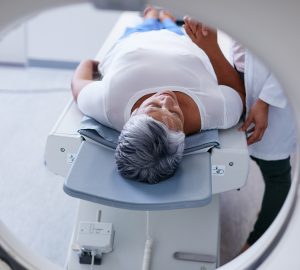Millions of people across the world are affected by addiction and its physical, mental and social consequences. Despite the stigma associated with addiction and the misconceptions that exist around those who suffer from it, the experts are clear on one thing – substance dependency is not a sign of inherent weakness. People with addiction can change their reality with the help of medical and mental healthcare professionals after investigating the role of a counselor.
One crucial aspect of addiction is its impact on one’s mental health and how that inevitably hinders a person’s ability to overcome their challenges. This is where a counselor for addiction comes in, who, with the partnership of other professionals like psychiatrists, psychologists and therapists, help a person manage their addiction and eventually come out of it. Here are some ways they help achieve de-addiction.
Understanding your addiction – Intensity, nature etc
Counselors play a crucial role in helping individuals understand the nature and intensity of addiction as part of the de-addiction process. This starts with a thorough assessment and evaluation of the stage of addiction one finds themselves in and how much it has affected their ability to conduct everyday activities. They look at the frequency and quality of substance use, history of addiction, patterns of behaviors and more. They also assess withdrawal symptoms and ways addiction has impacted an individual’s personal, family and social life.
While collaborating with other experts, Counselors work with individuals with substance dependency to identify triggers and situations that contribute to substance use. These patterns then help counselors devise treatment plans to tackle specific cues and stressors.
Designing education and treatment
The role of a counselor not only helps the individual understand the nature of their own addiction, but also provides general education on the physical, psychological, and social aspects of substance use disorders. They help them understand the cycle of addiction and the role of substance abuse on brain function and behavior.
Counselors understand that every individual’s response to addiction is different. Thus, based on their initial assessment, they collaborate with clients to develop personalized treatment plans that address their unique needs, challenges, and goals. These flexible treatment plans may include a combination of therapeutic interventions, support groups, complementary therapy such as music or art therapy and more.
While a psychiatrist might recommend the appropriate medication for anxiety or other effects of addiction, a counselor remains in constant conversation with the person, allowing them to adjust their treatment period, intensity and modalities over the course of the de-addiction programme.
Providing expertise and motivation
Counselors are trained to use evidence-based techniques such as cognitive-behavioral therapy (CBT) to help individuals overcome harmful patterns. CBT helps those with addiction recognize their negative behaviors and beliefs, and equip them with healthier coping mechanisms. This process gradually allows them to build resilience in the face of mental health problems and reduces chances of relapse.
They also provide lifestyle changes and provide strategies for stress management, improved communication and maintaining independence and control through and after the process of de-addiction.
Counselors also engage in discussions with the client in ways that help them express their challenges in a clearer manner. The role of a counselor involves the use of interview techniques that are motivational in nature and provide space for the person to articulate their thoughts and explore their own feelings.
Creating a supportive environment
Addiction is a problem that often creates immense alienation from family, friends and society as a whole due to the stigma around it and the moral judgments that come as a result. Counselors are experts in maintaining a calm, comfortable and non-judgemental environment that allows the individual to share their issues with clarity.
A therapeutic environment helps build a relationship between the counselor and the individual, which is key in making sustained progress and opening over the course of the de-addiction programme. It also helps regularly assess the improvements and hurdles of the individual and allows the professional track changes in substance use patterns, mental health and more.
It is essential that the person feels understood through this journey, and a counselor’s role in being a constant support, especially when it is hard to come by in the outside world, can make a world of difference.
Family support
The journey towards de-addiction doesn’t have to be traveled alone. Counselors keep regular touch with the family member of the individual, organize group therapy sessions and activities and arrange family counseling sessions independently. Family support in times of mental health struggle can change the dynamic of recovery and fuel one’s motivation towards the process. By integrating family into the treatment programme, counselors ensure a holistic recovery process that repairs lost bonds and focuses on the mental health of all parties involved.
Post-Rehab Care
De-addiction doesn’t end at the rehab center. Counselors work closely with individuals who have been substance free post-rehab to prevent relapse. They work together to find adequate strategies to avoid relapse, keeping in mind one’s family, professional and social factors. They help the person anticipate and manage potential challenges. The role of a counselor is to provide coping mechanisms, stress management techniques and generally encourage a healthy environment for maintaining a drug-free life.









